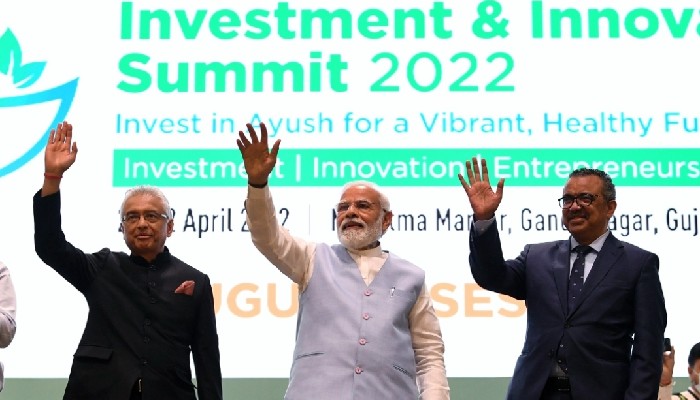This will unlock tremendous opportunities for start-ups, private sector, and research institutions
Announcing sweeping changes to the existing policy, the central government on Monday said Indian entities would no longer need prior approvals, security clearances, or licenses for acquisition and production of geospatial data and geospatial data services including maps.
In addition to providing new opportunities to Indian start-ups and research institutions, deregulation of the sector will also help farmers by leveraging the potential of geo-spatial and remote sensing data.
“All geospatial data produced using public funds, except classified geospatial data collected by security/law enforcement agencies, will be made accessible for scientific, economic and developmental purposes to all Indian Entities and without any restrictions on their use," Union Science and Technology Minister Harsh Vardhan said..
The Minister added that the decision would lead to a One Lakh Crore Rupees Geo-spatial Economy.
The changes have been made keeping in mind India’s new rule book of Aatmanirbhar Bharat.
Prime Minister Narendra Modi said the policy change is a massive step in the government's vision to make India self-reliant.
"Our government has taken a decision that will provide a huge impetus to Digital India. Liberalizing policies governing the acquisition and production of geospatial data is a massive step in our vision for an Aatmanirbhar Bharat," he said in a tweet.
Our government has taken a decision that will provide a huge impetus to Digital India. Liberalising policies governing the acquisition and production of geospatial data is a massive step in our vision for an Aatmanirbhar Bharat. #mapmakingsimplified https://t.co/ssbPhAeSp1
— Narendra Modi (@narendramodi) February 15, 2021
"The reforms will unlock tremendous opportunities for our country’s start-ups, private sector, public sector, and research institutions to drive innovations and build scalable solutions. This will also generate employment and accelerate economic growth," the Prime Minister further said in a subsequent tweet.
The reforms will unlock tremendous opportunities for our country’s start-ups, private sector, public sector and research institutions to drive innovations and build scalable solutions. This will also generate employment and accelerate economic growth. #Freedom2MapIndia pic.twitter.com/OoN1rDTwoW
— Narendra Modi (@narendramodi) February 15, 2021
He also said that the country's farmers will benefit by leveraging the potential of geo-spatial and remote sensing data. "These reforms demonstrate our commitment to improving ease of doing business in India by deregulation," PM Modi said in another tweet on the matter.
According to the Ministry of Science and Technology, what is readily available globally does not need to be restricted in India.
The existing regime imposed significant restrictions on the mapping industry - from creation to dissemination of maps. This required Indian companies to seek licenses and follow a cumbersome system of pre-approvals and permissions, the ministry noted.
“Compliance with these regulatory restrictions has subjected startups in India to unnecessary red tape, hindering Indian innovation in map technologies for decades," the ministry said.
"Our corporations and innovators are no longer subject to restrictions nor do they require prior approvals before they collect, generate, prepare, disseminate, store, publish, update digital Geospatial Data and Maps within the territory of India," it added.
The ministry also said that the government is looking forward to seeing India emerge as a mapping power.
 Contact Us
Contact Us  Subscribe Us
Subscribe Us









 Contact Us
Contact Us
 Subscribe
Subscribe
 News Letter
News Letter

